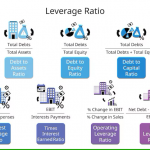Are you considering dipping your toes into the stock market? Investing in IPOs (Initial Public Offerings) can be an exciting opportunity for both seasoned and novice investors. But the big question is, when is the right time to take the plunge? In this article, we will explore the factors to consider when contemplating investing in IPOs.
As with any investment, it is essential to conduct thorough research and due diligence before committing your hard-earned money. While IPOs can offer significant potential for growth, they also come with inherent risks. Understanding the company’s market position, financials, and growth prospects is vital.
What is an IPO?
An IPO, or Initial Public Offering, is the first sale of a company’s stock to the public. It is a significant milestone in a company’s growth journey, as it transitions from being privately held to publicly traded. During an IPO, the company raises capital by selling shares to investors, allowing them to become shareholders in the company.
Initial Public Offerings (IPOs) are transformative events in the life cycle of a company, marking its transition from private ownership to becoming publicly traded on a stock exchange. For investors, IPOs represent an opportunity to gain early access to promising companies, participate in their growth journey, and potentially reap significant returns. In this section, we’ll explore what IPOs are, why they are a big deal for investors, and the factors that contribute to their allure.

Understanding IPOs:
An Initial Public Offering (IPO) is the process by which a privately held company offers its shares to the public for the first time, enabling it to raise capital from external investors. IPOs are typically facilitated by investment banks, which underwrite the offering and help the company navigate the regulatory requirements and complexities of going public.
During an IPO, the company issues new shares to the public, allowing investors to purchase ownership stakes in the company. These shares are priced based on various factors, including the company’s financial performance, growth prospects, industry trends, and market conditions. Once the IPO is completed, the company’s shares begin trading on a public stock exchange, such as the New York Stock Exchange (NYSE) or the Nasdaq Stock Market.
Why IPOs Matter for Investors:
IPOs are a big deal for investors for several reasons:
- Access to Early-Stage Companies: IPOs provide investors with the opportunity to invest in early-stage companies before they become widely recognized and established in the public markets. By participating in IPOs, investors can gain exposure to innovative startups, high-growth companies, and disruptive technologies that have the potential to generate substantial returns over time.
- Potential for Significant Returns: Investing in IPOs can be lucrative, as successful companies often experience significant share price appreciation following their public debut. Early investors who participate in IPOs at the offering price may benefit from substantial capital gains if the company performs well in the public markets. Examples of IPO success stories include companies like Amazon, Google, and Facebook, which have delivered exceptional returns to early investors.
- Diversification Opportunities: IPO investing can enhance portfolio diversification by adding exposure to sectors, industries, and market segments that may not be readily available through traditional investments. By allocating capital to a diverse range of IPOs across different sectors, investors can spread risk and potentially capture upside from emerging growth opportunities.
- Alignment with Growth Investing Strategies: IPOs are often associated with growth investing strategies, which focus on identifying companies with strong growth potential and market leadership positions. Growth investors seek out IPOs of companies that are disrupting industries, introducing innovative products or services, and poised for rapid expansion. Investing in IPOs aligns with the growth investor’s objective of capturing capital appreciation through exposure to high-growth companies.
- Market Visibility and Liquidity: Going public through an IPO provides companies with increased market visibility, enhanced brand recognition, and access to a broader investor base. For investors, IPOs offer liquidity and marketability, as shares of public companies can be bought and sold on stock exchanges with relative ease. Additionally, public companies are subject to regulatory oversight and disclosure requirements, providing investors with transparency and accountability.
IPOs represent a significant milestone for companies and offer compelling opportunities for investors seeking exposure to early-stage growth opportunities. By participating in IPOs, investors can gain access to promising companies, potential for significant returns, diversification benefits, and alignment with growth investing strategies. However, it’s essential for investors to conduct thorough due diligence, assess their risk tolerance, and consult with financial advisors before investing in IPOs to maximize their chances of success in the dynamic world of public markets.
The basics of investing in IPOs
Investing in IPOs can be an exciting and potentially lucrative opportunity, but it’s important to understand the basics before diving in. When a company goes public, it typically hires investment banks to underwrite the IPO and help with the pricing and distribution of the shares. These investment banks play a crucial role in bringing the company to the public markets.
Investors interested in IPOs can participate in the offering by purchasing shares at the IPO price. The IPO price is determined through a process called bookbuilding, where the investment banks solicit interest from potential investors and determine the demand for the shares. Once the IPO is priced, the shares are allocated to investors, and trading begins on the public markets.
Pros and cons of investing in IPOs
Like any investment, investing in IPOs comes with its own set of pros and cons. Let’s take a look at some of the advantages and disadvantages of investing in IPOs to help you make an informed decision.
Pros:
- Growth potential: IPOs often represent companies that are in their early stages of growth, with the potential for significant upside. Being an early investor can allow you to benefit from the company’s growth trajectory.
- Access to new opportunities: IPOs provide an opportunity to invest in companies that were previously inaccessible to the public. This can give you exposure to innovative industries and emerging trends.
- Potential for quick gains: Some IPOs experience significant price increases shortly after going public. If you are able to get in on the ground floor, you may be able to capture these early gains.
Cons:
- Volatility: IPOs can be highly volatile, with prices fluctuating dramatically in the early days of trading. This volatility can make it challenging to determine the true value of the stock.
- Lack of historical data: Unlike established publicly traded companies, IPOs often have limited financial history. This makes it difficult to assess their performance and future prospects.
- Limited information: Companies going public are required to disclose certain information, but it may not provide a complete picture of their business. This lack of information can make it harder to evaluate the investment opportunity.
Factors to consider before investing in an IPO
Investing in an IPO requires careful consideration of various factors. Here are some key factors to evaluate before deciding whether to invest in an IPO:
- Company fundamentals: Start by evaluating the company’s fundamentals, including its business model, revenue growth, profitability, and competitive advantage. Look for companies with strong financials and a clear path to future growth.
- Market conditions: Consider the overall market conditions and investor sentiment. IPOs tend to perform better in a favorable market environment, so it’s important to assess whether the broader market is conducive to IPO investments.
- Industry trends: Evaluate the industry in which the company operates. Is it a growing industry with favorable long-term prospects? Understanding the industry dynamics can help you assess the company’s growth potential.
- Management team: Assess the management team’s track record and experience. A strong management team with a proven track record can increase the likelihood of the company’s success.
- Valuation: Evaluate the company’s valuation relative to its peers and industry benchmarks. A company that is overvalued may not offer a favorable investment opportunity.
Timing the market for IPO investments
Timing is crucial when it comes to investing in IPOs. Some investors prefer to jump in early and take advantage of potential early gains, while others prefer to wait for the stock to stabilize. Here are some strategies for timing your IPO investments:
Early bird approach: If you believe in the long-term prospects of a company, you may choose to invest in the IPO and hold onto the shares for the long term. This approach allows you to benefit from the company’s growth potential, even if there is short-term volatility.
Stabilization period: Some investors prefer to wait for the stock to stabilize before investing. This approach allows you to avoid the initial volatility and get a better sense of the company’s performance and market reception.
Technical analysis: Use technical analysis techniques to identify potential entry points. Look for patterns and trends in the stock’s price and volume to determine the optimal time to invest.
How to research and evaluate IPO opportunities
Thorough research and evaluation are essential when considering IPO investments. Here are some steps to help you research and evaluate IPO opportunities:
- Read the prospectus: The prospectus is a document that provides detailed information about the company, including its history, financials, risks, and future prospects. Read the prospectus carefully to understand the company’s business model and investment potential.
- Analyze the industry: Research the industry in which the company operates. Understand the market dynamics, competition, and growth potential. Look for companies that are well-positioned within their industry.
- Evaluate the management team: Assess the management team’s track record, experience, and ability to execute the company’s growth strategy. A strong management team is crucial for the success of an IPO.
- Consider expert opinions: Look for insights from industry experts and analysts. Their opinions can provide valuable perspectives on the company’s prospects and potential risks.
- Monitor the news: Stay updated on the latest news and developments related to the company and its industry. News can have a significant impact on the stock’s performance.
Strategies for successful IPO investing
Investing in IPOs requires a well-defined strategy. Here are some strategies to help you navigate the world of IPO investing:
- Diversify your portfolio: Don’t put all your eggs in one basket. Invest in a diversified portfolio of IPOs to spread the risk and increase your chances of finding a winner.
- Set realistic expectations: IPOs can be highly volatile and unpredictable. Set realistic expectations and be prepared for potential ups and downs in the stock’s price.
- Stay informed: Stay updated on the company’s performance and industry trends. Regularly review your investments and make adjustments as needed.
- Consider long-term potential: Look beyond the short-term price movements and consider the company’s long-term growth potential. Focus on fundamentals and invest for the long term.
Risks associated with IPO investments
While IPOs can offer significant potential for growth, they also come with risks. Here are some common risks associated with IPO investments:
- Lack of trading history: IPOs often have limited trading history, making it difficult to assess the stock’s performance and volatility.
- Market volatility: IPOs can be highly volatile, with prices fluctuating dramatically in the early days of trading. Market volatility can impact the stock’s price and performance.
- Regulatory risks: Regulatory changes or legal issues can have a significant impact on the company’s operations and stock price.
- Lock-up periods: Lock-up periods restrict insiders from selling their shares immediately after the IPO. When the lock-up period expires, a flood of insider selling can put downward pressure on the stock’s price.
Common mistakes to avoid when investing in IPOs
Investing in IPOs can be lucrative, but it’s important to avoid common mistakes. Here are some mistakes to avoid when investing in IPOs:
- FOMO (Fear of Missing Out): Don’t invest in an IPO just because everyone else is. Conduct thorough research and make informed decisions.
- Ignoring fundamentals: Don’t overlook the company’s fundamentals. Evaluate the business model, financials, and growth prospects before investing.
- Chasing hot stocks: Avoid chasing stocks that have already experienced significant price increases. Look for companies with solid fundamentals and growth potential.
- Overinvesting: Don’t invest more than you can afford to lose. Set a realistic investment budget and stick to it.
Understanding the Dynamics of Investing in IPOs: Identifying the Right Investor Profile and Timing
Investing in Initial Public Offerings (IPOs) can be an exciting opportunity for investors to gain exposure to promising companies in their early stages of growth. However, IPOs also come with inherent risks and uncertainties, making it essential for investors to carefully evaluate their suitability based on their risk tolerance, investment objectives, and financial circumstances.
In this section, we’ll delve into the characteristics of investors who may consider investing in IPOs and the optimal timing for such investments.

Investor Profile: Who Should Consider Investing in IPOs?
While IPOs can offer significant growth potential, they are not suitable for all investors. Here are some characteristics of investors who may be well-suited to invest in IPOs:
- High-Risk Tolerance: Investing in IPOs entails higher risks compared to more established companies. Investors with a high-risk tolerance who are comfortable with the potential volatility and uncertainty associated with early-stage companies may find IPOs appealing.
- Long-Term Horizon: IPO investments are often considered long-term bets on a company’s growth potential. Investors with a long-term investment horizon who can withstand short-term fluctuations in stock prices may benefit from holding IPO stocks through their growth phases.
- Thorough Due Diligence Skills: Successful IPO investing requires thorough due diligence and analysis of a company’s fundamentals, business model, competitive landscape, and growth prospects. Investors with strong analytical skills and the ability to conduct in-depth research may be better equipped to evaluate IPO opportunities effectively.
- Access to Capital: Participating in IPOs may require substantial capital investment, particularly for retail investors seeking to purchase shares at the IPO price. Investors with access to sufficient capital and liquidity may have the flexibility to participate in IPOs without overextending their financial resources.
- Diversified Portfolio: IPO investing should complement a well-diversified investment portfolio. Investors with diversified portfolios spanning multiple asset classes and sectors may have the risk mitigation benefits necessary to absorb potential losses from individual IPO investments.
While these characteristics may align with certain investor profiles, it’s essential for investors to assess their own risk tolerance, investment goals, and financial situation before considering IPO investments. Consulting with a financial advisor or wealth manager can provide valuable guidance in determining suitability and developing an appropriate investment strategy.
Timing Considerations: When to Invest in IPOs?
Timing is critical when it comes to investing in IPOs. While there is no one-size-fits-all approach, here are some factors to consider when evaluating the timing of IPO investments:
- Market Conditions: The overall market environment can significantly impact the performance of IPOs. Bullish market conditions characterized by strong investor sentiment and favorable economic outlooks may provide a conducive backdrop for successful IPOs. Conversely, bearish market conditions or periods of heightened volatility may deter companies from going public or dampen investor appetite for IPOs.
- Company-Specific Factors: Evaluating company-specific factors such as growth prospects, competitive positioning, management team, and industry trends is crucial in assessing the potential success of an IPO. Investors should conduct thorough due diligence on IPO candidates to gauge their readiness for public markets and their ability to deliver long-term value to shareholders.
- Lock-Up Period Expirations: Many IPOs involve lock-up agreements that restrict insiders and early investors from selling their shares for a certain period following the IPO. Investors should be mindful of lock-up period expirations, as increased selling pressure from insiders can exert downward pressure on stock prices once lock-up restrictions are lifted.
- Post-IPO Price Volatility: IPOs often experience significant price volatility in the days, weeks, and months following their debut on public markets. Investors should be prepared for potential price fluctuations and market sentiment shifts as the company transitions from a private to a public entity.
- Long-Term Growth Potential: Ultimately, the decision to invest in an IPO should be based on the company’s long-term growth potential and fundamentals rather than short-term market dynamics. Investors should assess whether the company’s business model, competitive advantages, and growth prospects align with their investment objectives and risk tolerance.
Conclusion: Is investing in IPOs right for you?
In conclusion, investing in IPOs can offer attractive opportunities for investors seeking exposure to high-growth companies in their early stages of development.
However, IPO investing requires careful consideration of investor suitability, thorough due diligence, and strategic timing. By aligning their investment strategy with their risk tolerance, investment goals, and market conditions, investors can make informed decisions when considering IPO investments. Consulting with a financial advisor or wealth manager can provide valuable guidance and expertise in navigating the complexities of IPO investing and optimizing investment outcomes.
Investing in IPOs can be an exciting opportunity for investors looking to capitalize on the growth potential of early-stage companies. However, it’s important to carefully evaluate the risks and rewards before diving in. Conduct thorough research, consider the company’s fundamentals, and assess the market conditions before making an informed decision. By following a well-defined strategy and avoiding common pitfalls, you can potentially benefit from the growth and success of IPO investments.






